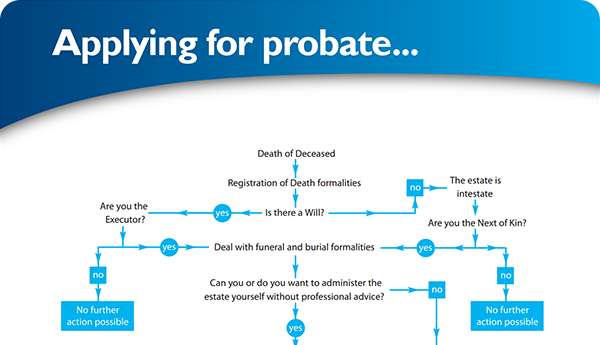How Long Does Probate Take? Understanding Every Stage of the Process

How Long Does Probate Take? Understanding Every Stage of the Process
The probate process is one of the most common questions we hear from families dealing with the loss of a loved one. If you're wondering, "How long does probate take?" the answer is: it depends. The timeline can vary significantly based on the complexity of the estate, state laws, and various other factors. Understanding each stage of the probate process can help you prepare for what lies ahead.
What Is Probate?
Probate is the legal process through which a deceased person's estate is administered and distributed to heirs and beneficiaries. This court-supervised process involves validating the will, paying debts and taxes, and transferring assets to the rightful beneficiaries. The duration of probate varies widely, typically ranging from 6 months to 2 years, though it can extend longer in complicated cases.
Stage 1: Filing the Petition (1-2 Weeks)
The probate process begins when the executor files a petition with the probate court in the county where the deceased person lived. This stage involves submitting the death certificate, the original will, and other required documents. The court reviews these documents to determine if the will is valid and whether the proposed executor is suitable for the role.
Timeline: This initial stage typically takes 1-2 weeks, depending on court schedules and document preparation.
Stage 2: Notifying Heirs and Creditors (2-3 Months)
Once the petition is filed, the executor must notify all heirs, beneficiaries, and potential creditors about the probate proceedings. This is typically done through published notices in newspapers and direct notification to known parties. The notification period allows creditors to submit claims against the estate and gives heirs the opportunity to object to the will if they have concerns.
Timeline: This stage usually lasts 2-3 months, as there are specific waiting periods mandated by law.
Stage 3: Inventory and Appraisal (1-3 Months)
The executor must compile a comprehensive inventory of all estate assets, including real property, personal property, bank accounts, investments, and business interests. For valuable or unique items, professional appraisals may be required. This inventory must be submitted to the court and is crucial for determining the estate's total value.
Timeline: Depending on the estate's size and complexity, this stage can take 1-3 months or longer.
Stage 4: Payment of Debts and Taxes (Throughout the Process)
The executor is responsible for identifying and paying all outstanding debts, including mortgages, medical bills, credit card debts, and federal and state taxes. Estate and income taxes must be filed, and the executor may need to obtain an Employer Identification Number (EIN) from the IRS. This stage can be time-consuming, especially if disputes arise regarding debt validity or tax obligations.
Timeline: This process runs concurrently with other stages and can significantly impact overall probate duration if complexities arise.
Stage 5: Court Hearing and Account Settlement (1-2 Months)
The executor files a final accounting with the court showing all income, expenses, and distributions made during the probate process. A hearing may be scheduled where the judge reviews this accounting and ensures that all procedures were followed correctly. Beneficiaries have the opportunity to object to the accounting at this time.
Timeline: This stage typically takes 1-2 months, depending on court availability and any objections raised.
Stage 6: Asset Distribution and Closure (Varies)
Once the court approves the final accounting and all debts and taxes are paid, the executor can distribute the remaining assets to the heirs and beneficiaries according to the will or state intestacy laws. After all distributions are complete, the executor files a final report with the court, and probate is officially closed.
Timeline: This final stage can take several weeks to months depending on asset complexity.
Factors That Can Extend Probate
- Complex Estate: Large estates with multiple properties, businesses, or investments require extensive documentation and appraisals.
- Will Contests: If beneficiaries challenge the validity of the will, probate can be significantly delayed.
- Tax Issues: Complex tax situations or disputes with tax authorities can extend the timeline.
- Debts and Claims: Outstanding debts, liens, or creditor claims must be resolved before distribution.
- Court Backlogs: Depending on your location, court congestion can cause delays.
- Out-of-State Assets: Properties in other states may require ancillary probate proceedings.
- Executor Issues: If the executor is unavailable or incompetent, the court may need to appoint a replacement.
Ways to Expedite the Probate Process
While you cannot eliminate probate entirely in most cases, there are strategies to potentially speed up the process:
- Hire an Experienced Probate Attorney: An attorney familiar with local probate procedures can navigate the system efficiently.
- Organize Estate Documents: Having all necessary documents readily available expedites filing and review processes.
- Maintain Clear Communication: Keeping beneficiaries informed and responsive reduces delays from disputes or missing information.
- Use Informal Probate: If applicable, some states offer simplified or informal probate for smaller estates, which can be much faster.
- Plan Ahead: Proper estate planning with trusts and beneficiary designations can help avoid probate altogether for certain assets.
Conclusion
The probate process typically takes 6 months to 2 years, but understanding each stage helps families prepare for the journey ahead. The timeline depends on your specific circumstances, state laws, and estate complexity. If you're currently dealing with probate or planning for the future, consulting with a probate professional can provide clarity and peace of mind.
For more information or assistance with probate matters, contact our experienced probate team today. We're here to guide you through every step of the process.
Back To BlogShare This Post
Recent posts
- Probate Delays and How to Speed Things Up in 2026 By Admin , 03/02/2026
- Inheritance Tax Planning: 2026 Allowances and Exemptions Guide By Admin , 03/02/2026
- Making a Will at Christmas: Why the Holidays Are the Right Time By Admin , 23/12/2025
2015 Archive
2016 Archive
2018 Archive
2019 Archive
2020 Archive
0 Archive
- December 2 posts
2023 Archive
- July 10 posts
2026 Archive
- February 13 posts
Blog Categories
Find your way through the probate maze
Click here to follow our step-by–step probate process guide
×



